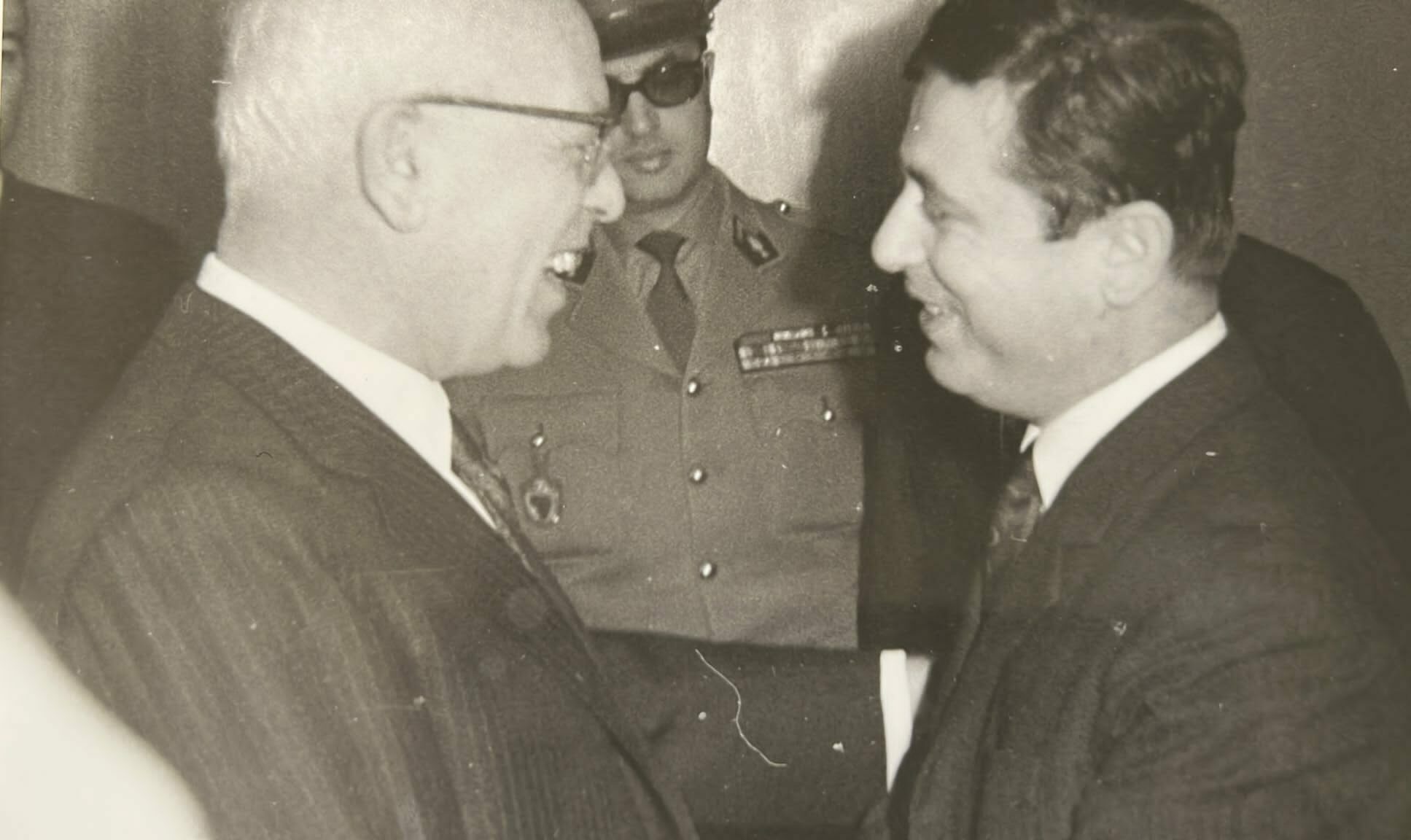The Climate for Peace is Growing in the Region, but Opponents Remain in Place
What impact could the assassination attempt on Abdel Halim Khaddam have on the Lebanese crisis’s path toward its final resolution, and what effect might it have on the proposed solutions for the regional crisis?
A responsible Lebanese politician predicted yesterday that the incident would have repercussions both on the security and governmental levels. He noted that military developments are inevitable after the attempt, resembling, in nature, the events that took place in some Lebanese areas following the Samiramis Hotel incident. A confrontation, if it happens with certain parties, could delay the formation of the government or, at the very least, lead to a reconsideration of the current framework for it.
However, those close to the presidential palace remain convinced that President Sarkis is eager to form a government that will launch the reconstruction program and address urgent administrative matters that the Karami government has disrupted due to its increasing contradictions day by day.
These insiders add that preliminary consultations on this matter have made significant progress with the Islamic Gathering on one hand and the Lebanese Front on the other, and they have indirectly included Mr. Kamal Jumblatt.
However, these consultations are not yet sufficient and may require some time to reach an agreement on a formula acceptable to all parties.
Peace Climate
The region’s climate is one of urgency for peace, despite the fact that opponents still remain on the scene. There are many indicators of this climate, including Yitzhak Rabin’s statements yesterday about (significant geographic concessions) that Israel may offer as part of a settlement. He also affirmed that peace is no longer far away and that it is closer than they had expected. Additionally, he spoke optimistically about a Middle Eastern economic market.
Other indicators include Egyptian Foreign Minister Ismail Fahmy’s remarks about a Palestinian state that Israel would need to accept, Colonel Muammar Gaddafi’s visit to Moscow, which is likely to result in greater flexibility in Libya’s position, the renewal of UN forces in the Golan Heights, and the UN Security Council’s vote to begin peace negotiations in Geneva, following the General Assembly’s vote on the Palestinian state project.
Attempted Freeze
No one is currently talking about war in the Middle East, and observers view Israel’s actions on the Lebanese border as an attempt to freeze the Cairo Agreement, nothing more and nothing less. They are convinced that Geneva’s second round is no longer far off and that the recovery of the Golan Heights provides further assurance for Lebanon’s safety.
If there is any direct meaning to the assassination attempt on Minister Khaddam, it does not suggest any internal Syrian disagreements stemming from two incompatible views on Syria’s current strategy. Minister Khaddam is not targeted due to his sectarian or political affiliation, and any attack on him will certainly not change Syria’s political course at this stage.
Moreover, the Arab consensus that emerged from the Riyadh Conference and crystallized at the Cairo Summit is yet another confirmation that the Arab train is heading toward the Geneva negotiations, and Syria’s diplomatic movements align with this direction, both in their motivations and objectives during this phase.
Key Considerations
In any case, the rational dialogue—free from the sounds of gunfire—between Lebanon, Palestine, the Arab world, and the international community has indeed begun. Some time will need to pass before it bears fruit. The Lebanese situation could be considered in a phase of security convalescence, and it is essential to solidify this stage before the Lebanese people can return to normalcy on both psychological and material levels.
Arab diplomatic sources are expecting new surprises similar to the assassination attempt on Minister Khaddam, but these surprises will not significantly alter the course of solutions because they are merely tactical actions incapable of disrupting a comprehensive strategy.
As for the weight of this attempt on the Lebanese scene, particularly at this stage, it can be attributed, according to Lebanese circles, to several key considerations, the most notable being three:
The first consideration is that Minister Abdel Halim Khaddam, throughout the months of Lebanon’s severe ordeal and in the absence of a Lebanese foreign ministry, acted as the foreign minister for both Syria and Lebanon. He defended the rights of the Lebanese people in Arab and international forums with the same enthusiasm that he led Syria’s dynamic diplomacy.
The second consideration is that Minister Khaddam is one of four or five leaders who, alongside Syrian President Hafez al-Assad, are involved in shaping Syria’s general policies and making final decisions about them.
The third consideration is that Minister Khaddam has been closely involved with the Lebanese crisis since its inception, first as a political mediator, then during Syria’s military intervention, and finally during the resolution phase. His recent statement about the decision to collect heavy weapons from both the Lebanese and the Palestinians clearly embodies the spirit of the Riyadh and Cairo Conferences, which brought calm back to Lebanon.
It is quite natural that Lebanese security is more tied to Syrian security at this stage than at any previous time, and that the political and psychological impact of the incident in Beirut resonates as much in Damascus.

